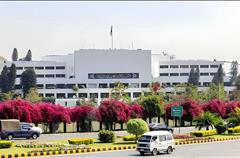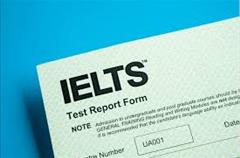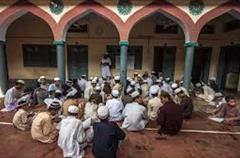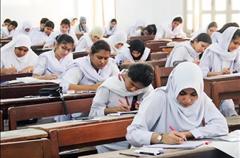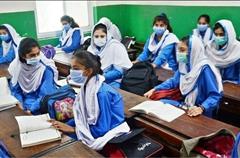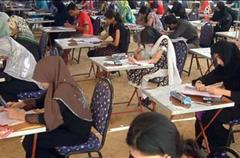The academic future of thousands of students in Pakistan has been thrown into uncertainty following the sudden postponement of intermediate examinations in Balochistan and Karachi. The delays, attributed to administrative shortcomings and protests by educators, have raised alarms among students, parents, and educational stakeholders across the country.
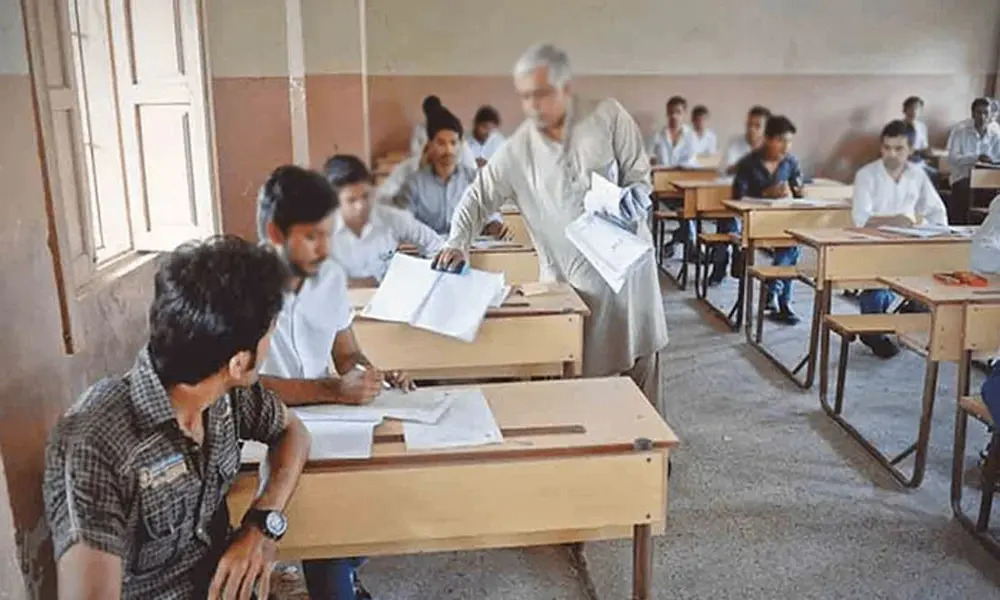
Balochistan Board Postpones Exams Amid Teacher Boycott
The Balochistan Board of Intermediate and Secondary Education (BBISE) made a surprising announcement just one day before the scheduled start of intermediate examinations, postponing the exams by three weeks. The board cited "unavoidable reasons" for the decision. However, media reports suggest that the actual cause behind the postponement is a teachers’ boycott, which has severely disrupted exam arrangements.
Sources familiar with the situation indicate that the teachers' refusal to perform examination-related duties has paralyzed the board's ability to conduct exams as planned. The boycott has not only left examination centres understaffed but has also created logistical and security challenges that the board was unprepared to handle.
In a statement, the BBISE chairman confirmed the delay but did not provide a revised timetable. "We understand the distress this has caused among students, and we are working diligently to resolve the situation," he said. Despite reassurances, no specific timeline or alternative arrangements have been announced, leaving students in limbo.
Karachi Exams Postponed Until After May 6
Meanwhile, students in Karachi are facing similar uncertainties. The Board of Intermediate Education Karachi (BIEK) announced that intermediate exams will now be conducted after May 6, 2025. The postponement was attributed to the unavailability of key personnel, including the board chairman, and the lack of examination venues due to ongoing matriculation exams, which are expected to continue until May 2.
Reports suggest that around 300 examination centres have yet to receive official approval, further complicating the board's ability to finalize the exam schedule. In addition to venue-related issues, administrative bottlenecks have delayed critical processes such as the scrutiny of over 27,000 exam registration forms and tabulation of student data.
A senior official from BIEK, speaking on condition of anonymity, stated, "The situation is complex. We're dealing with infrastructural challenges and a shortage of staff, which has made it difficult to meet our initial deadlines."
Students Bear the Brunt of Administrative Failures
These delays have had a cascading effect on students' academic plans. Many intermediate students were preparing to take their final exams in order to apply for university admissions both in Pakistan and abroad. With the postponements, timelines for result announcements and subsequent admission processes are now uncertain.
"This is our future at stake. We’ve been studying for months and now we don’t even know when the exams will happen," said a student from Quetta. Similar sentiments were echoed by students in Karachi, who are frustrated by the lack of communication and transparency from their respective educational boards.
Parents and teachers have also voiced concerns over the repeated delays and lack of coordination. "The system needs a complete overhaul. Exams are not something you can just delay at the last minute without serious consequences," said a teacher who requested anonymity.
The Political Angle and Public Opinion
Amidst the educational chaos, a broader debate has emerged regarding the governance and political will to manage education effectively in Pakistan. In a related development, the controversial Sindh-Cholistan Canal Project has been dubbed by many as a mere political stunt rather than a practical initiative. The juxtaposition of political maneuvering with administrative negligence in education has fueled public dissatisfaction.
A social media user commented, "If only our leaders focused on education the way they focus on headlines and publicity projects, students wouldn’t be suffering like this."
No End in Sight
As of now, neither BBISE nor BIEK has provided a definitive timeline for the rescheduling of exams. Educational analysts warn that prolonged delays could result in a backlog of academic sessions, affecting not only current students but also incoming batches.
Calls for intervention from higher authorities, including the Ministry of Education and provincial governments, are growing louder. Many are demanding that the government step in to mediate with the protesting teachers and streamline the administrative processes that have caused these disruptions.
Recommendations for Immediate Action
In order to minimize the damage caused by these delays, experts recommend the following steps:
-
Prompt Negotiations with Teachers: Addressing the concerns of educators through dialogue and incentives can bring an end to the boycott.
-
Temporary Staffing Solutions: Hiring retired teachers or qualified volunteers to fill examination duties temporarily can help bridge the staffing gap.
-
Digital Documentation: Accelerating the digitalization of student records and exam processing can reduce administrative delays.
-
Transparent Communication: Boards must maintain open lines of communication with students and parents, providing regular updates on exam schedules.
The postponement of intermediate examinations in Balochistan and Karachi is a wake-up call for the country's educational authorities. It highlights the urgent need for systemic reform, better planning, and stronger coordination among all stakeholders. Until then, the academic fate of thousands of students remains uncertain, caught in the crossfire of administrative inefficiencies and political distractions.
With final exams now indefinitely delayed, the spotlight is firmly on the educational boards and provincial governments to restore order and deliver on their promise of educational continuity and excellence.
Explore Educational News
Related News
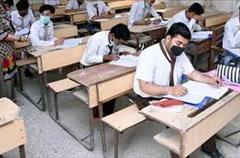
Punjab Increases Registration Fee for Matric
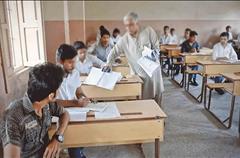








.gif)








